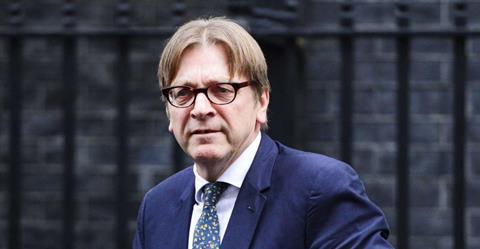The Government has revealed that it plans to propose what it described as an ‘innovative and untested approach’ to customs checks, as part of its Brexit negotiations, which will ‘mirror’ the EU’s current customs approach.

In what is thought to be the first detailed plan of the Government’s negotiating plan, the UK is suggesting an ‘interim period’, which will provide the ‘necessary time for both the UK and EU member states to implement any agreed long-term solutions’.
During this period, the paper proposes a “new and time-limited customs union between the UK and EU customs union based on a shared external tariff and without custom processes and duties between the UK and the EU”, in order to avoid ‘cliff-edge’ for business as they adapt to the new arrangements.
According to the paper, the UK will look to agree either a ‘highly streamlined border’ with the EU, or a new ‘partnership’ with no customs border at all, removing the need for any customs checks between the UK and the EU.
“By mirroring the EU’s customs approach at its external border, we could ensure that all goods entering the EU via the UK have paid the correct EU duties,” the paper said.
“This would remove the need for the UK and the EU to introduce customs processes between us, so that goods moving between the UK and the EU would be treated as they are now for customs purposes.”
According to the proposals, the Government will look to simplify the requirements for moving goods across borders, while also looking at options to reduce the “pressure and risk of delays at ports and airports”, by using, for example, number plate recognition technology at ports.
In assessing the options for the UK’s future outside the EU Customs Union, the Government noted it will be guided by what “delivers the greatest economic advantage to the UK” and by three strategic objectives, including ensuring that the UK-EU trade is as frictionless as possible, avoiding a hard border between Ireland and Northern Ireland, as well as establishing an independent international trade policy.
However, the paper also added that the UK “would not bring into effect any new arrangements with third countries, which were not consistent with the terms of the interim agreement”, while that was in place.
The reaction so far
The European Parliament’s Brexit co-ordinator, Guy Verhofstadt, responded to the proposals on social media commenting that the issues of “citizens (sic) rights and a financial settlement” had to come first.
A European Commission spokesman said that an agreement on a future relationship between the EU and the UK can only be finalised once the UK has become a third country and added: “We take note of the UK's request for an implementing period and its preferences as regards the future relationship, but we will only address them once we have made sufficient progress on the terms of the orderly withdrawal.
“As Michel Barnier has said on several occasions, 'frictionless trade' is not possible outside the single market and customs union."
This story was originally published on a previous version of the Meat Management website and so there may be some missing images and formatting issues.












